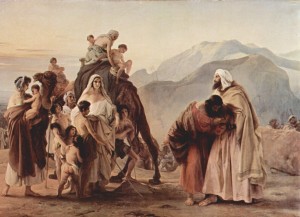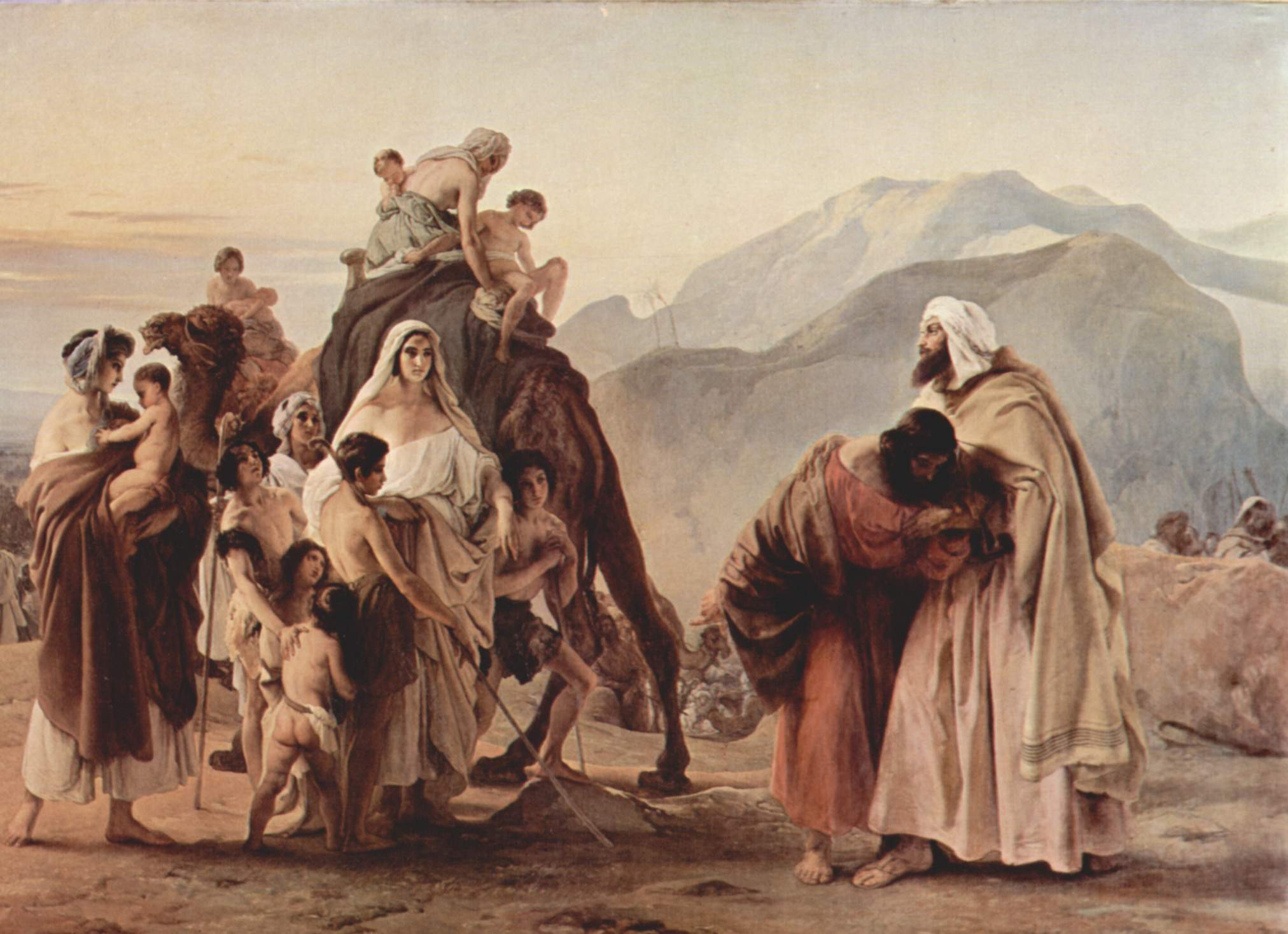 In this episode, the Mormon Matters “Genesis Team”—David Bokovoy, Tom Roberts, and Brian Hauglid—join host Dan Wotherspoon for a discussion of Genesis 24–33, which focus on the God-ordained meeting and marriage of Isaac and Rebekah, and the tales of their twin sons, Esau and Jacob—many of which focus on trickery and deception in order to fulfill Yahweh’s plans to continue the purity of the bloodline and the pass along the blessings of the Abrahamic covenant. It also looks closely at Jacob and his journey from being somewhat of a “Mama’s boy” to a full-fledged prophet-hero—to a great extent aided by his mighty wrestle with Yahweh himself. The episode contains important insights into the text and its sources, various laws, customs, and folk magic that help explain some very strange actions—How does one create a lot of spotted, speckled, and ringstraked livestock? By putting similar things in front of them while they mate!—and the troubling presence of parental favoritism that plagues the families of many biblical prophets. It also gives the panel and host chances to reflect on powerful moments of forgiveness and the spiritual growth of many characters—growth that is, in their (and in many of our) lives aided by great physical and mental striving.
In this episode, the Mormon Matters “Genesis Team”—David Bokovoy, Tom Roberts, and Brian Hauglid—join host Dan Wotherspoon for a discussion of Genesis 24–33, which focus on the God-ordained meeting and marriage of Isaac and Rebekah, and the tales of their twin sons, Esau and Jacob—many of which focus on trickery and deception in order to fulfill Yahweh’s plans to continue the purity of the bloodline and the pass along the blessings of the Abrahamic covenant. It also looks closely at Jacob and his journey from being somewhat of a “Mama’s boy” to a full-fledged prophet-hero—to a great extent aided by his mighty wrestle with Yahweh himself. The episode contains important insights into the text and its sources, various laws, customs, and folk magic that help explain some very strange actions—How does one create a lot of spotted, speckled, and ringstraked livestock? By putting similar things in front of them while they mate!—and the troubling presence of parental favoritism that plagues the families of many biblical prophets. It also gives the panel and host chances to reflect on powerful moments of forgiveness and the spiritual growth of many characters—growth that is, in their (and in many of our) lives aided by great physical and mental striving.
_________
Links:
David Bokovoy, Authoring the Old Testament (Kofford Books, 2014)
The Jewist Bible: Tanakh (Jewish Publication Society translation)


Comments 6
As I was listening I kept wanting to interject my questions from a feminist perspective. When you were talking about “presentism,” as in writing from the future to support a certain goal or view relevant to the current time, what is your opinion of Riane Eisler and Margaret Barker’s critiques that the writers were consciously working to write the stories in a way that downplayed the old traditions where a goddess was much more relevant to life and religion. Do you think there is evidence to support that theory, that part of what the writers were trying to do was prop up patriarchy, replacing and/or subverting the women’s role into one that is more subservient and a system where women’s power to act (and preserve their ancient traditions that include a feminine divine) became “tricky” (like Rebekah and Leah etc).
Fascinating question Miriam. I look forward to a response.
As member of the Genesis team, I’d like to thank you for your well stated question. However, I must state that scholars have been backing away in recent decades from the notion of a matriarchal age prior to 1400 BC which lead into the patriarchal religion of the Near East. Early feminist writers such Mary Daley, Rosemary Ruether, Merlyn Stone and others held to the matriarchal. However, scholars such as Kinzey and Phyllis Tribble have clearly shown Near Eastern religious texts such as the KRT and others were always dominated by a male deity even Asherah and other female counterparts were on the Great Counsel. With all due respect, it wasn’t our subject matter to state whether or not the matriarchal applications were redacted from the biblical text. Hope this helps. Sincerely, Father Tom
Thanks for the reply. Of course that wasn’t your subject matter–I was just curious what your perspective was. Thanks again.
Really enjoying the series – keep up the great work. Someone (Brian I think, but maybe it was David) mentioned a book by an Israeli scholar – what was the name again? Sounded interesting – want to put it on my to read list.
Thanks!
I wish there was one or two women on this series of panel discussions. Lots of interesting things being discussed. Thanks!